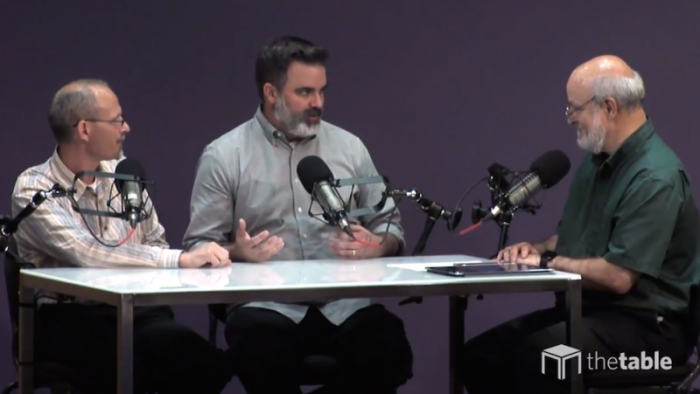Is It OK for Christians to Watch Church Online and Not Attend?

Professors at Dallas Theological Seminary weighed in on whether attending church solely online and not in person is a legitimate option for Christians.
Their answer: it is not.
"[T]his experience of church mediated entirely through technology is a pseudo experience of what the church is called to be," said Barry Jones, professor of Pastoral Ministries at DTS.
Jones, who is also teaching pastor at Irving Bible Church, gave his response at a DTS student event where students had raised the question of why people should go to church.
His large church posts sermons on its website and also allows visitors to watch there worship services live online. But Jones explained that those are "primarily for those people who, for whatever compelling reason, can't be there."
"We refuse to call that an online campus and to make that sort of, in any way, communicate that that could be your normal church experience," he stressed.
"[W]e try to make sure that we're continuing to tell them, 'This shouldn't be your normative experience of church or Sunday worship. You should be here.'"
He admitted though that because they make the services and messages available online, it has become "easier" for people to simply not show up at church.
Michael Svigel, professor of Theological Studies at DTS, also acknowledged that some people may consider online church a legitimate option because it's available.
"Well, we can be clear that that's not, right?" Svigel said. "We can not have an online only option, which some churches have done. I mean, thankfully, it's a minority. Most people have the sense that merely attending an online campus is not in itself acceptable, except in the exceptions, right?"
A 2015 report by Leadership Network and Hartford Institute found that the use of on"online campuses" is rising, with 30 percent of megachurches offering an online campus experience, which not only includes live streaming of the worship service but also interactive features and online attender accountability.
Earlier this year, author Skye Jethani offered that church attendance is in decline partly due to the plethora of podcasts and Internet resources on Bible teaching that are available for Christians today.
"[W]e need to factor in the availability and the saturation of that content [online] when we think about why people aren't showing up," he said.
Jones of DTS believes the Church today is experiencing a kind of Docetism, which is a Christian heresy that says Christ appeared to but did not actually have a real body during his life on earth.
"Jesus only seemed to have a body because he couldn't actually have a body and be God. The church called that heresy. Well, we're experiencing a different kind of Docetism that sort of almost says, 'We only seem to have a body,'" he said.
"So much of our experience in life and relationships are mediated. So then our experience of church becomes mediated, and we just suck the life out of it in that sense, that just as connectivity is a terrible replacement for real community because actually, that connectivity only leads us further towards isolation."
Church is not just a place to consume "religious goods and services," he argued. Rather, it's a place to gathering and do "life together," which is what allows for a believer's spiritual growth, Jones indicated.
"[I]t's what we do when we gather together that has some kind of form, and that that form is for the purpose of forming us as disciples to live on mission in the world," he stated.
Svigel also stressed the importance of gathering as the church.
"I absolutely do not believe you can grow spiritually in any meaningful balanced way apart from the means God has given for spiritual growth, which is the community," he emphasized.
"The New Testament uses, Paul uses the image of growth — this is an agricultural term for growing spiritually — several places, about nine times. Every single one of them is in the context of the corporate community. It's not 'read your Bible, pray every day, and you'll grow, grow, grow,' as the AWANA song goes."
The DTS discussion was led by Darrell Bock, executive director of Cultural Engagement and senior research professor of New Testament Studies, and broadcast through The Table podcast.




























